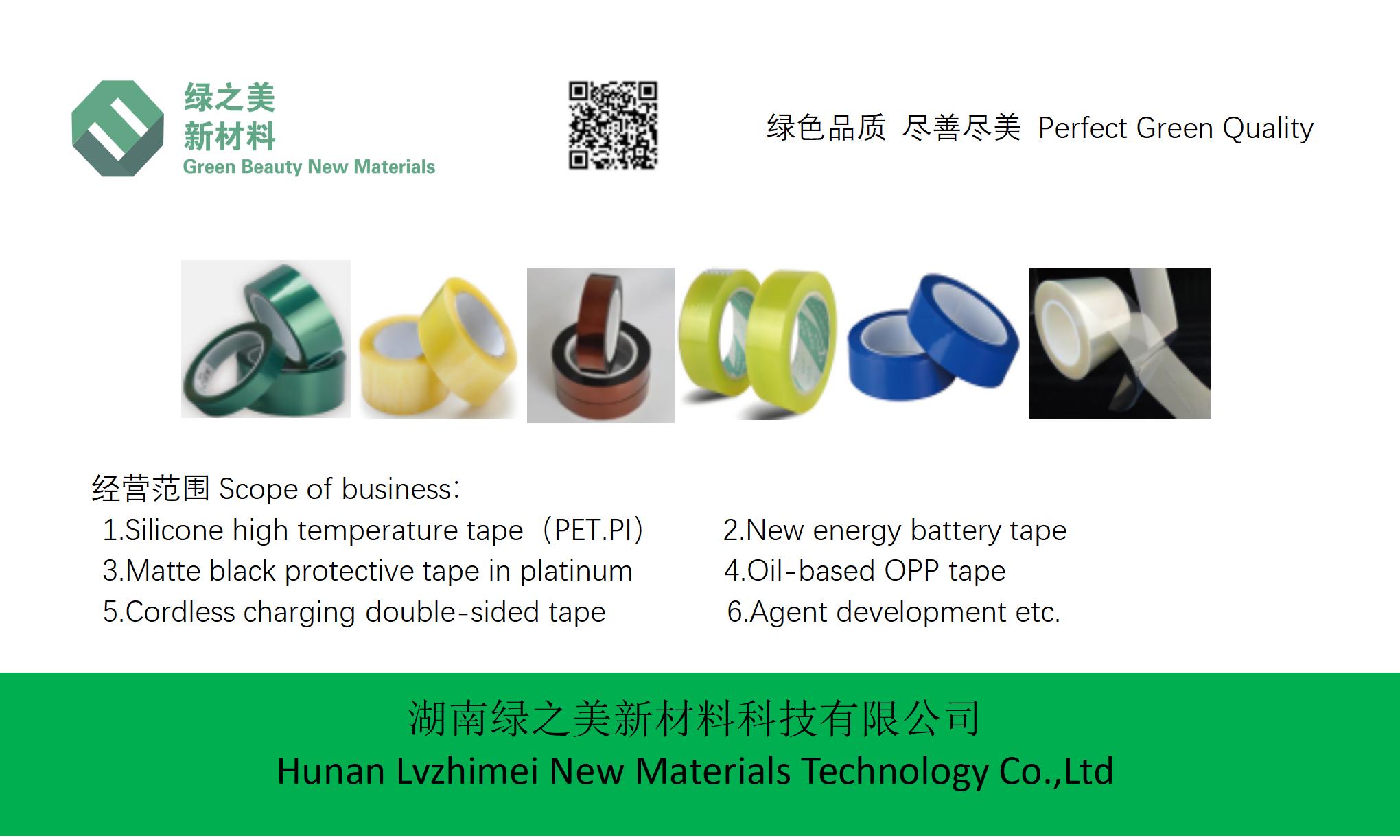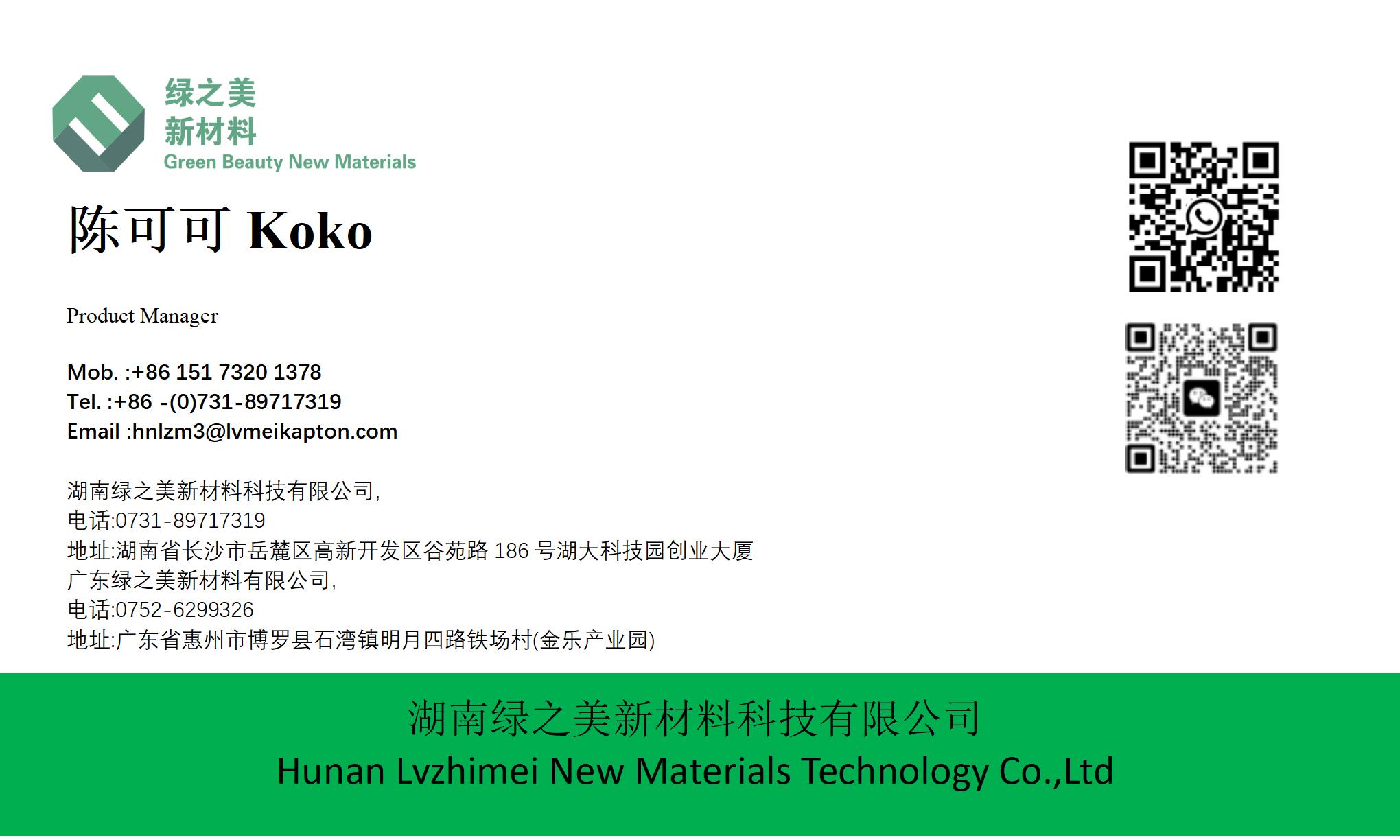hnlzm@lvmeikapton.com
+86 13787123465


Hunan Lvzhimei New Material Technology Co., Ltd.


NameDescriptionContent
Which Industries Benefit Most from Gold Finger Kapton Tape’s Chemical Resistance Properties? |https://www.lvmeikapton.com/
Source:
|
Author:Koko Chan
|
Published time: 2025-04-29
|
61 Views
|
Share:
Kapton tape, renowned for its exceptional chemical resistance and high-temperature stability, plays a pivotal role in diverse industrial applications. This article delves into key sectors that leverage its unique properties, focusing on the repeated utilization of specific product variants to address critical challenges.
Which Industries Benefit Most from Gold Finger Kapton Tape’s Chemical Resistance Properties?
Kapton tape, renowned for its exceptional chemical resistance and high-temperature stability, plays a pivotal role in diverse industrial applications. This article delves into key sectors that leverage its unique properties, focusing on the repeated utilization of specific product variants to address critical challenges.
1. Electronics Manufacturing: Ensuring Circuit Integrity
The electronics industry faces stringent requirements for component protection during assembly and maintenance. Kapton tape’s Self-adhesive back blocking spray paint tape variant proves invaluable in masking circuit boards during soldering processes, preventing thermal damage and chemical contamination from flux agents. According to a 2024 study by Electronics Today, 85% of PCB manufacturers reported improved yield rates by adopting this tape for thermal shielding.
Furthermore, PI material high temperature resistant 300 tape (operating up to 300°C) is essential for insulating flexible printed circuits (FPCs) exposed to corrosive solvents during cleaning routines. A case study by LVMEIKAPTON (a leading tape supplier) demonstrated a 40% reduction in conductor degradation when this tape was applied to high-frequency connectors.
Key Applications:
●
Brown circuit board high temperature tape for wave soldering protection
●
Adhesive PET material high temperature tape for conformal coating masking
2. Aerospace Engineering: Withstanding Extreme Environments
Aerospace components encounter harsh conditions, including fuel exposure, thermal cycling, and mechanical stress. Strong adhesion and blocking high temperature tape (e.g., LVMEIKAPTON’s H-Grade variant) is integral to sealing engine wiring harnesses against jet fuel corrosion. NASA’s recent testing validated its resistance to JP-8 kerosene for over 1,000 hours.
In avionics systems, PI material high temperature resistant 300 tape is crucial for wrapping connectors subjected to -65°C to 260°C fluctuations. Boeing’s use of this tape in their 787 Dreamliner’s flight control systems reduced wire chafing by 75%, enhancing reliability.
Table: Aerospace Tape Applications
Component | Challenge | Kapton Tape Variant |
Engine wiring harnesses | Fuel leakage/thermal stress | LVMEIKAPTON H-Grade tape (Chemical-resistant adhesive) |
Avionic connectors | Extreme temperature cycling | PI material high temp. 300 tape (Self-adhesive backing) |
3. Chemical Processing: Corrosion Mitigation
Industrial chemical plants rely on Kapton tape’s robust barrier properties. Brown circuit board high temperature tape (resistant to H2SO4 and NaOH) is extensively used for insulating pipes carrying corrosive fluids. A 2023 report by the American Chemical Society highlighted its 98% effectiveness in preventing acid-induced pipe degradation.
Moreover, Self-adhesive back blocking spray paint tape aids in temporary sealing of reactor vessels during maintenance, resisting solvents used in cleaning agents. DuPont’s implementation of this tape in their chlorination units achieved zero tape detachment incidents over two years.
4. Automotive Manufacturing: Thermal Management
Modern vehicles demand materials capable of enduring engine bay temperatures (up to 200°C) and exposure to oils and coolants. Adhesive PET material high temperature tape is pivotal for bundling wire harnesses near exhaust systems, preventing melting and abrasion. Ford’s adoption of this tape in their EV battery packs increased wire longevity by 50%.
Additionally, Strong adhesion and blocking high temperature tape serves as a dielectric layer in hybrid motor coils, resisting electrolyte corrosion. Tesla’s Model S drivetrains utilize this tape, reducing coil insulation failures by 60%.
5. Renewable Energy: Enhancing Durability
Solar and wind energy installations face prolonged UV exposure and environmental chemicals. PI material high temperature resistant 300 tape is employed to encapsulate PV module junction boxes, maintaining performance in desert climates. First Solar’s field trials in Arizona showed a 30% lower degradation rate with this tape compared to conventional alternatives.
lvmeikapton insulating electrical tape also plays a role in offshore wind turbines, shielding cable terminations from saltwater corrosion. Siemens Energy’s use of this tape in their 14 MW turbines extended maintenance intervals from 6 months to 2 years.
Conclusion: Future Prospects
As industries continue to evolve, Kapton tape’s chemical resistance remains a cornerstone for reliability. From electronics to renewable energy, its variants (such as Self-adhesive back blocking spray paint tape, PI material high temperature resistant 300 tape, and Brown circuit board high temperature tape) offer tailored solutions to combat corrosive environments. According to Global Market Insights, the tape’s demand is projected to grow at a 7.5% CAGR through 2030, driven by advancements in electric vehicles and aerospace technology.
Key Takeaways:
1.
Electronics: Masking and insulation during thermal processes.
2.
Aerospace: Fuel resistance and thermal cycling protection.
3.
Chemical: Acid-resistant piping and reactor sealing.
4.
Automotive: Engine bay wire bundling and EV battery protection.
5.
Renewable Energy: UV and saltwater resilience in outdoor installations.
By leveraging these specialized tapes, industries not only mitigate failures but also extend equipment lifespans, reducing maintenance costs and environmental risks. The synergy between chemical resistance and high-temperature stability positions Kapton tape as an indispensable tool across critical sectors.



Hunan Lvzhimei New Material Technology Co., Ltd.
Quick Links
Product Categories
© 2024 Hunan Lvzhimei New Material Technology Co., Ltd.All Rights Reserved. Designed by Erge
0731 - 89717319
hnlzm@lvmeikapton.com
+86 13787123465
Room 502, Chuangye Building, No186, Guyuan Road, High-Tech District, Changsha, Hunan, China
CONTACT



